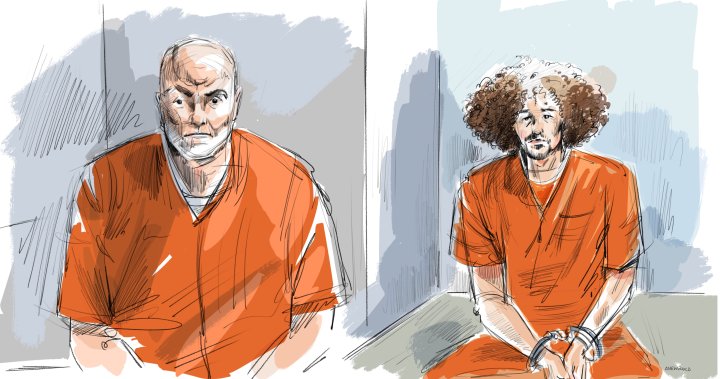Paragraph 1: A landmark legal case has unfolded in Canada, marking the first time an individual suspected of ISIS affiliation faces war crimes charges within the country. Ahmed Fouad Mostafa Eldidi, a Toronto-based delivery driver and naturalized Canadian citizen originally from Egypt, stands accused of committing heinous acts in Iraq during the peak of ISIS’s reign of terror between 2014 and 2015. The charges, filed in an Ontario court, encompass four counts, including torture and murder, under the Crimes Against Humanity and War Crimes Act. This unprecedented application of the act signals a significant shift in Canada’s approach to prosecuting individuals allegedly involved in war crimes committed abroad, particularly within ISIS-controlled territories.
Paragraph 2: Eldidi’s alleged crimes came to light through a disturbing 2015 ISIS propaganda video, in which a man, purportedly Eldidi, is seen using a sword to mutilate a captive. Despite this documented evidence of his alleged involvement with ISIS, Eldidi successfully entered Canada in 2018, claiming refugee status, which was subsequently granted. He later obtained Canadian citizenship. The revelation of Eldidi’s past and subsequent charges have ignited a public debate about the effectiveness of Canada’s immigration and security screening processes, raising concerns about potential vulnerabilities that allowed an individual with such a history to gain entry and citizenship.
Paragraph 3: The charges against Eldidi represent a departure from Canada’s previous use of war crimes legislation, which primarily focused on deportation and citizenship revocation. While a prior case involved a B.C. resident pleading guilty to war crimes related to hate speech in the Democratic Republic of Congo, this case marks the first time charges under the Act have been brought against an individual for alleged crimes committed within ISIS territory. This signifies a crucial step in holding individuals accountable for atrocities committed abroad and reinforces Canada’s commitment to international justice.
Paragraph 4: The indictment against Eldidi details accusations of mutilation and “outrages upon personal dignity” committed during an armed conflict. While the victim remains unnamed, they are identified as a “protected person in a non-international armed conflict,” underscoring the vulnerability of civilians caught in the crossfire of such conflicts. The charges were authorized by Canada’s deputy attorney general, reflecting the seriousness with which these allegations are being treated. This case holds broader implications for the pursuit of justice for countless victims of ISIS atrocities, a pursuit that has been largely elusive thus far.
Paragraph 5: Eldidi’s case unfolds against the backdrop of the widespread atrocities committed by ISIS in Syria and Iraq, including the systematic genocide of the Yazidi people. Despite the group’s territorial defeat in 2019, the pursuit of justice for victims has been slow and challenging. Canada has primarily used peace bonds to restrict the movements of returning ISIS members, particularly women, a measure that falls short of criminal charges. Eldidi’s case, therefore, represents a potential shift towards holding individuals criminally responsible for their alleged actions within ISIS.
Paragraph 6: The case also underscores a surge in ISIS-related investigations in Canada, with a marked increase in arrests in recent years. Experts point to a concerning trend of youth involvement in resurgent ISIS activities, highlighting the enduring threat posed by the group despite its territorial losses. Eldidi’s case, along with the increased investigative activity, indicates a growing need for robust security measures and effective legal mechanisms to address the complex challenges posed by terrorism and war crimes. The ongoing debate surrounding the effectiveness of Canada’s security screening processes underscores the necessity of continuous review and improvement to prevent future instances of individuals with alleged ties to terrorism gaining entry and citizenship.










